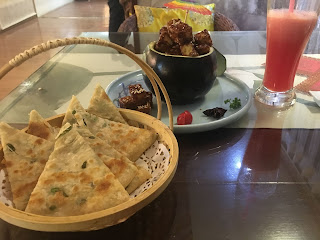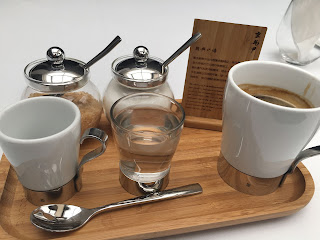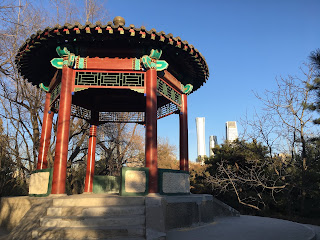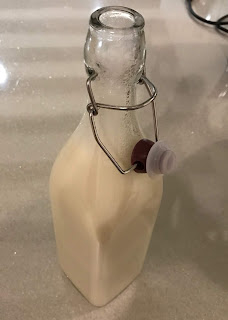In this talk, Harvard-educated psychologist Dr Melanie Joy discusses how we may be oblivious to some of the most frequent and important choices that we make in our daily lives, how violent and destructive practices can be invisible to us. She goes on to explain how we can strive to create a more humane and just world.
Saturday, December 14, 2019
"Toward Rational, Authentic Food Choices"
In this talk, Harvard-educated psychologist Dr Melanie Joy discusses how we may be oblivious to some of the most frequent and important choices that we make in our daily lives, how violent and destructive practices can be invisible to us. She goes on to explain how we can strive to create a more humane and just world.
Thursday, November 28, 2019
Quick cook easy vegan brownies
Here is a really easy recipe to make tasty vegan brownies. These quantities make 9 or 12 brownies depending on how large you cut them. Or 4, if you're feeling particularly hungry or generous. I've found these are always very popular with vegans and non-vegans alike!
Ingredients and method:
Mix 2 tablespoons of ground flaxseed with 6 tablespoons of boiling water; stir and put to one side. (This is the egg replacement.)
Melt 110g of a vegan butter, such as "Pure" sunflower spread:
Add 200g caster sugar, 110g plain flour, 30g cocoa powder, a pinch of salt, 40g crushed walnuts, 1/4 teaspoon baking powder, the flaxseed and water combination, a tablespoon or two of maple syrup (if you like gooey brownies), and a small glug of vanilla extract (optional):
Mix up (by hand is fine, or use a mixer of some kind) and pour into a square baking tray that is around 6'x6':
Bake for about 20-25mins at 180 degrees C, then leave to stand for 5 minutes before turning out onto a wire rack to cool:
That's it! Enjoy.
Monday, October 21, 2019
Vegan nutrition
We are told from an early age that meat and dairy products will make us grow big and strong, but it is increasingly clear that such products are not necessary to live healthily... and actually they may be doing us more harm than good.
Here are some useful and eye-opening resources relating to veganism and nutrition:
And finally, check out this great interview with Dr Ellsworth Wareham from 2013, when he was a mere 98 years old (having retired at 95 from his medical practice). His key advice for living a long and healthy life: be active; be vegan; be calm; and get a good night's sleep!
Here are some useful and eye-opening resources relating to veganism and nutrition:
- "British Dietetic Association confirms well-planned vegan diets can support healthy living in people of all ages"
- "NHS - The vegan diet"
- "Evidence-Based Eating Guide: A Healthy Living Resource from Dr. Greger & NutritionFacts.org"
- "B12: A Magic Pill, or Veganism’s Achilles Heel?"
- "High intake of dietary fibre and whole grain foods reduces risk of non-communicable diseases"
- "12 Amazing Health Benefits Of Peas"
- "Everything you need to know about lentils"
- "Doctors are petitioning the FDA to place health warnings on cheese products"
- "New Studies on Red and Processed Meat Are a Big, Fat Nothingburger" (debunking "new research that conflicts with nearly ubiquitous dietary advice to eat less red and processed meat")
- "Harvard researchers: Red meat consumption tied to early death"
- "Harvard Declares Dairy NOT Part of Healthy Diet"
- "This Is Your Brain On Cheese"
- "Q&A on the carcinogenicity of the consumption of red meat and processed meat"
- "Yes, bacon really is killing us: Decades’ worth of research proves that chemicals used to make bacon do cause cancer. So how did the meat industry convince us it was safe?"
- "Give up dairy products to beat cancer”
- "Women who drink cow’s milk could increase their risk of breast cancer by as much as 80 percent in comparison with women who drink soy milk."
And finally, check out this great interview with Dr Ellsworth Wareham from 2013, when he was a mere 98 years old (having retired at 95 from his medical practice). His key advice for living a long and healthy life: be active; be vegan; be calm; and get a good night's sleep!
Wednesday, October 9, 2019
Why is dairy scary?
You may have seen the hashtag #DairyIsScary on social media; here's an explanation in just 5 minutes of why this is the case:
Sunday, July 7, 2019
Overcoming cognitive biases
This is a very interesting talk by Earthling Ed, in which he explores the idea of 'cognitive biases' - reasons why people may find change difficult, may find becoming vegan a challenging idea:
Thursday, June 13, 2019
Veganism and religion
Some people use religion or religious principles to justify eating animals and animal products. However, the following articles provide some really interesting perspectives on veganism and religion:
1. "Buddhism on a Plate: the case for Buddhists to go vegan"
2. "The Christian basis for veganism" and "Should Christians be vegan?"
3."Muslims Should Stop Eating Animals" (published by The Vegan Muslim Initiative, an organisation set up by two Muslim vegans that "aims to educate Muslim communities worldwide about the benefits of veganism"). See also: "You are what you Eid: Ramadan for vegans"
4. "Vegan is the new kosher, rabbis worldwide declare"
5. "5 reasons Hindu vegetarians should go vegan"
A central theme of these articles is that those who believe in love, kindness, and compassion should very seriously consider the impact that eating animals and animal products has on the environment, on other humans (who are affected by climate change or by working in the livestock and dairy industries), and of course the impact on the animals themselves - whether chickens in the egg industry, chickens in the food industry, cows, pigs, fish... or other living creatures who, just as ourselves, do not wish to die early and wish to live peacefully and free from unnecessary pain and suffering.
Ultimately, many people find going vegan to be a hugely positive and rewarding experience that brings their actions and their way of living more into line with their underlying sense of ethics and morality.
If you are interested in reading more about veganism, and perhaps trying out some tasty plant-based recipes, check out the many free resources available from the Vegan Society, Veganuary, or Challenge 22.
1. "Buddhism on a Plate: the case for Buddhists to go vegan"
2. "The Christian basis for veganism" and "Should Christians be vegan?"
3."Muslims Should Stop Eating Animals" (published by The Vegan Muslim Initiative, an organisation set up by two Muslim vegans that "aims to educate Muslim communities worldwide about the benefits of veganism"). See also: "You are what you Eid: Ramadan for vegans"
4. "Vegan is the new kosher, rabbis worldwide declare"
5. "5 reasons Hindu vegetarians should go vegan"
A central theme of these articles is that those who believe in love, kindness, and compassion should very seriously consider the impact that eating animals and animal products has on the environment, on other humans (who are affected by climate change or by working in the livestock and dairy industries), and of course the impact on the animals themselves - whether chickens in the egg industry, chickens in the food industry, cows, pigs, fish... or other living creatures who, just as ourselves, do not wish to die early and wish to live peacefully and free from unnecessary pain and suffering.
Ultimately, many people find going vegan to be a hugely positive and rewarding experience that brings their actions and their way of living more into line with their underlying sense of ethics and morality.
If you are interested in reading more about veganism, and perhaps trying out some tasty plant-based recipes, check out the many free resources available from the Vegan Society, Veganuary, or Challenge 22.
Tuesday, March 19, 2019
A vegan in Beijing, China!
I am just back in the UK after 10 days in Beijing, China. It's fantastic to read in the news that China is now "a step closer to banning cosmetic animal testing". In relation to eating out, I certainly found that vegan food was both easy to find and incredibly tasty. The "Happy Cow" app was invaluable in finding specifically vegan and vegan-friendly places to try, but as you'll see below, I found that it was pretty easy to find vegan food in any restaurant.
I stayed in a hotel very near to the Forbidden City, and under an hour's walk away was "SUHU - QianMen", an exclusively vegan, all-you-can-eat buffet-style restaurant:
Under an hour's walk from my hotel in a different direction was another branch of SUHU, "SUHU - Fulllink Plaza", which was also exclusively vegan, but a more traditional, formal restaurant setting:
Very close to my hotel was a wonderful vegetarian restaurant, "Fu Hui Ci Yuan". From the outside, it looked unremarkable:
However, the food and environment were fantastic (I went back quite often; the following pictures are from a number of trips!). The restaurant is linked with a Buddhist organisation and most of the dishes on the menu were actually vegan:
I would also recommend "Vegetarian Dumpling", a vegetarian restaurant specialising in dumplings. Quite a few dishes on the menu contained egg, but they also had a fair number of vegan options:
For a special treat (since it is quite a lot more expensive than other restaurants - but there was a live harpist performing!), the "King's Joy" vegetarian restaurant is a delight:
Aside from these specifically vegetarian and vegan restaurants, 'normal' restaurants always seemed to have vegan-friendly options on their menus, for example, here is a selection of the vegan dishes I found in various random places:
All in all, as you can see from the above, I did not go hungry!
I found it interesting that linguistically, there is not a separate word in Mandarin for "vegan"; the phrase for "I am vegan" is "我吃纯素" ("wo chi chun su"), which literally means something along the lines of "I eat pure, simple/plain/clean food" - whereas "I am vegetarian" is just "我吃素" ("wo chi su") - i.e. being vegan is just expressed to be being "pure" vegetarian.
Perhaps because of this, perhaps because many Buddhists (of whom there are a fair number in China) follow a plant-based diet, being vegan did not feel as "other" as it does in the UK. Chinese food does not customarily use dairy, and meat and eggs can easily be avoided. Tofu and vegetable-based dishes (especially using aubergine, mushrooms, green beans, and/or Chinese cabbage) are very commonly found on menus; I did not once need to order something special or off-menu. Serving staff, and Chinese people I met and chatted with, did not seem to raise their eyebrows when I explained I did not eat meat, eggs, or dairy, but often went out of their way to suggest possible dishes I could have.
All in all, it was a great trip, and I look forward very much to returning sometime! I'll sign-off with a few other photos from my visit, to give a flavour of the sights that Beijing - a huge, crazy, and diverse city - has to offer:
I stayed in a hotel very near to the Forbidden City, and under an hour's walk away was "SUHU - QianMen", an exclusively vegan, all-you-can-eat buffet-style restaurant:
(tofu, various vegetables, noodles, steamed buns)
Under an hour's walk from my hotel in a different direction was another branch of SUHU, "SUHU - Fulllink Plaza", which was also exclusively vegan, but a more traditional, formal restaurant setting:
(assorted fruit and sprouting beans, served as a starter)
(tofu and mushrooms in a vegetable broth)
(green beans and chilli - quite spicy!!)
(green leaf filled steamed buns)
Very close to my hotel was a wonderful vegetarian restaurant, "Fu Hui Ci Yuan". From the outside, it looked unremarkable:
However, the food and environment were fantastic (I went back quite often; the following pictures are from a number of trips!). The restaurant is linked with a Buddhist organisation and most of the dishes on the menu were actually vegan:
(a spicy tofu dish with rice)
(green beans with a black bean sauce)
(assorted veg, fake meat, and noodles)
(vegetable pancakes, soy roasted aubergine, watermelon juice)
(noodles and veg)
(lotus flower tea - very refreshing and apparently very good for the health!)
I would also recommend "Vegetarian Dumpling", a vegetarian restaurant specialising in dumplings. Quite a few dishes on the menu contained egg, but they also had a fair number of vegan options:
(tofu and chopped green veg; dumplings containing peanuts and Chinese cabbage)
For a special treat (since it is quite a lot more expensive than other restaurants - but there was a live harpist performing!), the "King's Joy" vegetarian restaurant is a delight:
(strawberries to start with)
(chopped avocado with beans and salad)
(thin noodles in vegetable broth)
(boiled rice with seaweed and cubed roasted aubergine)
(mushrooms on 'popped' rice of some kind)
Aside from these specifically vegetarian and vegan restaurants, 'normal' restaurants always seemed to have vegan-friendly options on their menus, for example, here is a selection of the vegan dishes I found in various random places:
(broad beans and mushrooms)
(tofu and assorted veg)
(spicy tofu dish, with Chinese cabbage in vinegar dressing and white rice on the side)
All in all, as you can see from the above, I did not go hungry!
I found it interesting that linguistically, there is not a separate word in Mandarin for "vegan"; the phrase for "I am vegan" is "我吃纯素" ("wo chi chun su"), which literally means something along the lines of "I eat pure, simple/plain/clean food" - whereas "I am vegetarian" is just "我吃素" ("wo chi su") - i.e. being vegan is just expressed to be being "pure" vegetarian.
Perhaps because of this, perhaps because many Buddhists (of whom there are a fair number in China) follow a plant-based diet, being vegan did not feel as "other" as it does in the UK. Chinese food does not customarily use dairy, and meat and eggs can easily be avoided. Tofu and vegetable-based dishes (especially using aubergine, mushrooms, green beans, and/or Chinese cabbage) are very commonly found on menus; I did not once need to order something special or off-menu. Serving staff, and Chinese people I met and chatted with, did not seem to raise their eyebrows when I explained I did not eat meat, eggs, or dairy, but often went out of their way to suggest possible dishes I could have.
All in all, it was a great trip, and I look forward very much to returning sometime! I'll sign-off with a few other photos from my visit, to give a flavour of the sights that Beijing - a huge, crazy, and diverse city - has to offer:
Wednesday, March 6, 2019
"How Eating Plants Changed My Life - How It Could Change Yours"
This is a really interesting and inspiring video in a number of respects. It will be particularly useful if you are interested in the health and nutritional aspects of veganism.
"Nimai Delgado discusses how he used his mechanical engineering background to optimize his health by choosing the right fuel for optimal human performance and became an elite professional bodybuilder on a fully plant based diet."
"Nimai Delgado discusses how he used his mechanical engineering background to optimize his health by choosing the right fuel for optimal human performance and became an elite professional bodybuilder on a fully plant based diet."
Saturday, February 2, 2019
Making soya milk: "Soyabella" review
Here is the end product - a bottle of soya milk made from about 85g dried soya beans, using the Tribest "Soyabella" milk maker (available from Amazon for £129.95 at the time of writing).
Now, clearly this is not a cheap piece of kit. However, given that dried soya beans can be purchased cheaply (e.g. £1.39 for 500g organic soya beans here), the cost of a bottle of homemade soya milk is approximately 20-25p (if not less). The "Soya Bella" can also be used to make nut milks, rice milk, and oat milk. I use mine to make 3-4 bottles of different milks per week; at that rate, it will pay for itself in under a year. And, I also prefer the 'cleaner' taste of homemade milks - no additives, sweeteners, chemicals, and so on.
So, here is how you use the Soyabella to make soya milk!
1. Measure out a small cup of dried soya beans and soak for at least 4 hours.
2. Screw on the blending attachment, fill the kettle with cold water to the internal water line, attach together and press the "milk" button:
3. When it beeps to indicate that it's finished (about 15-20 minutes later), pour out into jugs to cool (I tend to pour through a sieve as there can be a small amount of foam on top):
4. When cool, pour into a bottle and store in the fridge. If you wish, you can sweeten (e.g. with stevia, to be healthy!) and/or add flavourings such as vanilla extract.
All in all, I definitely think the Soyabella is worth the money. As well as soya milk, making nut milks with whatever nuts you have to hand is quite a fun and creative process (and the leftover nut pulp can be used in baking or cooking). As mentioned above, there is something nice and 'clean' about homemade milks - and since they are so much cheaper than shop-bought milks, the Soyabella will pay for itself! My view is it's definitely worth the investment.
Subscribe to:
Comments (Atom)



















































